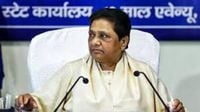NEW DELHI: Maharashtra Chief Minister Devendra Fadnavis addressed concerns on Saturday regarding the state government's recent decision to make Hindi compulsory as a third language under the National Education Policy (NEP) 2020. While emphasizing that Marathi remains non-negotiable in the state, he defended the policy that allows students to learn additional languages by choice.
The Maharashtra government, through its School Education Department, mandated on April 16 that Hindi will be taught as a third language from Class 1 in all state board schools, alongside Marathi and English, in accordance with NEP 2020.
"Marathi language is compulsory in Maharashtra; everyone should learn it. Additionally, if you wish to learn other languages, you can do so. Opposition to Hindi and promotion of English is surprising. If someone opposes Marathi, then it will not be tolerated," CM Fadnavis said.
Congress leader Vijay Wadettiwar opposed the decision and questioned the government's motives behind making Hindi mandatory. "You can keep it optional, but you cannot impose it. At whose behest are you trying to impose this language on the state?" Wadettiwar said. "We consider Marathi our mother tongue, and this third language that is being introduced should not be brought in. There should be no coercion against the rights of the Marathi people -- this is our demand."
Rahul Ashok Rekhawar, Director of the State Council of Educational Research and Training (SCERT), Maharashtra, explained the rationale behind the decision. "On behalf of the Maharashtra Government, the School Education Department has taken a decision in which teaching Hindi language along with Marathi and English has been made compulsory from class 1 in all the schools of the state board. This decision has been made with all the appointments and their development in view, and the students will definitely benefit from it," Rekhawar said.
Rekhawar clarified that the decision was based solely on educational considerations and not influenced by political or community agendas.
Meanwhile, in Bengaluru, a separate yet related language debate has resurfaced, highlighting tensions surrounding linguistic identity in India. The city, known as the IT capital of the country, has seen an influx of people from various regions, sparking discussions about the use of the Kannada language.
A video recently went viral showing a man confronting an auto driver, demanding he speak in Hindi if he wanted to remain in Bengaluru. The altercation, which was recorded and shared widely, captured the essence of the ongoing debate about language use in the city.
In the video, the man can be heard saying, "Speak in Hindi if you want to stay in Bengaluru." The auto driver, however, firmly responded, "You have come to Bengaluru, you speak in Kannada. I won't speak in Hindi." The reason for the confrontation remains unclear, but the comments sparked outrage, particularly among Kannadigas.
The video, posted on X (formerly Twitter), has garnered over 537.6K views, igniting a flurry of responses from users. One user commented, "The arrogance and hatred comes with Hindi! No other language speakers have this audacity to ask other language speakers to speak in their own language. Adaptability should be the nature of any language but Hindi only knows to engulf others." Another user shared a personal anecdote, stating, "I don't support pro-Kannada hooliganism but the Hindi guy in the video deserves belt treatment, he has come here from somewhere else and he's expecting locals to speak his language?"
As these discussions unfold, it becomes clear that the language issue in India is deeply intertwined with cultural identity and regional pride. The Maharashtra government's decision to mandate Hindi in schools has reignited long-standing debates about linguistic rights and the preservation of regional languages.
Critics argue that making Hindi compulsory could undermine the status of Marathi and other regional languages, while supporters claim it is a necessary step towards national integration and better communication across diverse linguistic communities.
In Bengaluru, the viral video exemplifies the challenges faced by non-Kannada speakers in a city that is fiercely protective of its linguistic heritage. The incident not only highlights the complexities of language dynamics in a multicultural society but also raises questions about the expectations placed on newcomers in terms of language proficiency.
As India continues to grapple with its linguistic diversity, the conversations surrounding language policy and cultural identity will undoubtedly remain a focal point of public discourse. The Maharashtra government's decision and the recent events in Bengaluru serve as reminders of the ongoing struggle to balance regional pride with the demands of a rapidly globalizing world.
In conclusion, these developments reflect a broader narrative about language and identity in India, where regional languages are often seen as symbols of cultural heritage and pride. The discussions that arise from these situations will likely shape the future of language policy in the country, as stakeholders from various backgrounds seek to find common ground amidst a landscape rich in linguistic diversity.






